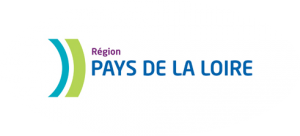The discovery and optimization of new catalytic systems require a rapid screening of compatible reactive partners, experimental conditions or catalyst candidates. However, while high throughput (HT) and combinatorial syntheses are very efficient for the preparation of compound libraries, they are not well suited for optimization processes since the automation usually result in a sampling of predetermined reaction conditions. These issues are inherent to simultaneous (parallel) batch-like synthesis where a feedback cannot be integrated into the optimization workflow. The projet SmartCat propose self-optimizing flow reactors as powerful devices for optimization processes, thanks to a feedback integrated to the flow process.
Flow chemistry offers many significant improvements over batch chemistry such as better mass and heat transfer, efficient mixing, safety enhancement, reduced reaction times and waste, higher reproducibility, as well as benefits resulting from automation. The miniaturization of flow devices makes them perfectly sized for the screening and optimization of reactions involving high added value compounds such as elaborated intermediates or expensive organometallic catalysts.
One of the major aims of SmartCat is to develop an automated self-optimizing flow reactor integrating an optimization algorithm, thus offering an extremely attractive opportunity to invent the chemistry 2.0.
In SmartCat we are working on a groundbreaking flow reactor that allows both the rapid screening of catalyst candidates and the optimization of reaction conditions through a fully computer-controlled rational and intelligent approach. A near real time in line analysis of the reaction stream, monitoring the reaction composition and connected to intelligent algorithms updating the reaction conditions, is provided via the design of an unprecedented device incorporating a low field nuclear magnetic resonance (NMR) spectrometer. Thus, SmartCat use an ad hoc optimization method for new reactions, quickly converging to near-optimal solutions, and minimizing the number of experiments required at each step.
The SmartCat project is funded by The Région des Pays de la Loire through the framework of a “Pari Scientifique”.


